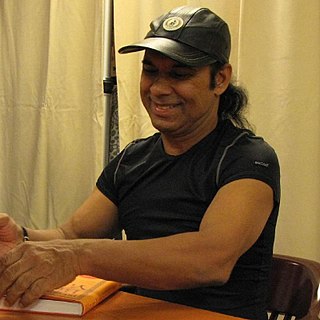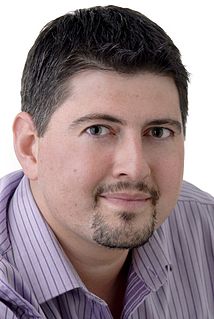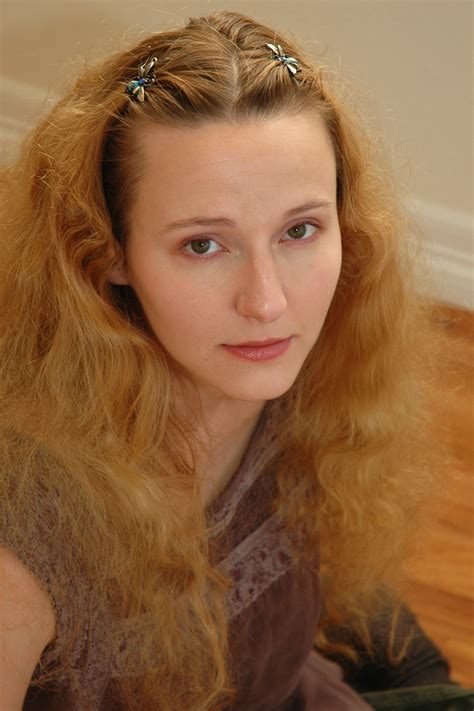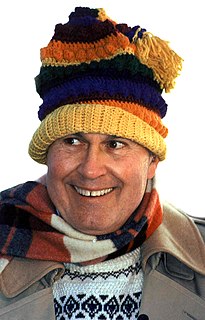A Quote by Alan Bradley
I was an early reader, and my grandmother, who as a child had been forbidden to read by a father who believed books to be frivolous time-wasters, delighted in putting her favorite volumes into her grandchildren's hands.
Related Quotes
From an early age she had developed the art of being alone and generally preferred her own company to anyone else’s. She read books at enormous speed and judged them entirely on her ability to remove her from her material surroundings. In almost all the unhappiest days of her life she had been able to escape from her own inner world by living temporarily in someone else’s, and on the two or three occasions that she had been too upset to concentrate she had been desolate.
I haven't any right to criticize books, and I don't do it except when I hate them. I often want to criticize Jane Austen, but her books madden me so that I can't conceal my frenzy from the reader; and therefore I have to stop every time I begin. Every time I read Pride and Prejudice I want to dig her up and beat her over the skull with her own shin-bone.
Her [Eleanor Roosevelt] father was the love of her life. Her father always made her feel wanted, made her feel loved, where her mother made her feel, you know, unloved, judged harshly, never up to par. And she was her father's favorite, and her mother's unfavorite. So her father was the man that she went to for comfort in her imaginings.
Her library would have been valuable to a bibliophile except she treated her books execrably. I would rarely open a volume that she had not desecrated by underlining her favorite sections with a ball-point pen. Once I had told her that I would rather see a museum bombed than a book underlined, but she dismissed my argument as mere sentimentality. She marked her books so that stunning images and ideas would not be lost to her.
I was raised by my grandmother. She had a very difficult time, raised all her kids, my father and everybody. Listening to those stories and finding her so strong, poised. Anybody who came close to her was made to feel blessed. And at the same time, it didn't matter how strong a person was, in front of her, their head would go down. She carried through her life raising everybody. That is my model.
I asked my grandmother how a Hungarian Jewish person can experience being Jewish. My grandmother answered was the only choice was to "keep quiet." I can understand her because she was a Holocaust survivor, and for her survival, she had to keep quiet. But I didn't obey my grandmother when I was a child, and in this case, I don't obey her either.
Hats change everything. September knew this with all her being, deep in the place where she knew her own name, and that her mother would still love her even though she hadn’t waved goodbye. For one day her father had put on a hat with golden things on it and suddenly he hadn’t been her father anymore, he had been a soldier, and he had left. Hats have power. Hats can change you into someone else.
I once received a letter from an old lady in California who informed me that when the tired reader comes home at night, he wishes to read something that will lift up his heart. And it seems her heart had not been lifted up by anything of mine she had read. I think that if her heart had been in the right place, it would have been lifted up.
Occasionally, on screen, Barbara [Stanwyck] had a wary, watchful quality about her that I've noticed in other people who had bad childhoods; they tend to keep an eye on life because they don't think it can be trusted. After her mother was killed by a streetcar, she had been raised in Brooklyn by her sisters, and from things she said, I believe she had been abused as a child. She had lived an entirely different life than mine, that's for sure, which is one reason I found her so fascinating. I think her early life was one reason she had such authenticity as an actress, and as a person.
The apartment was entirely, was only, for her: a wall of books, both read and unread, all of them dear to her not only in themselves, their tender spines, but in the moments or periods they evoked… Her self, then, was represented in her books; her times in her records; and the rest of the room she thought of as a pure, blank slate.





































